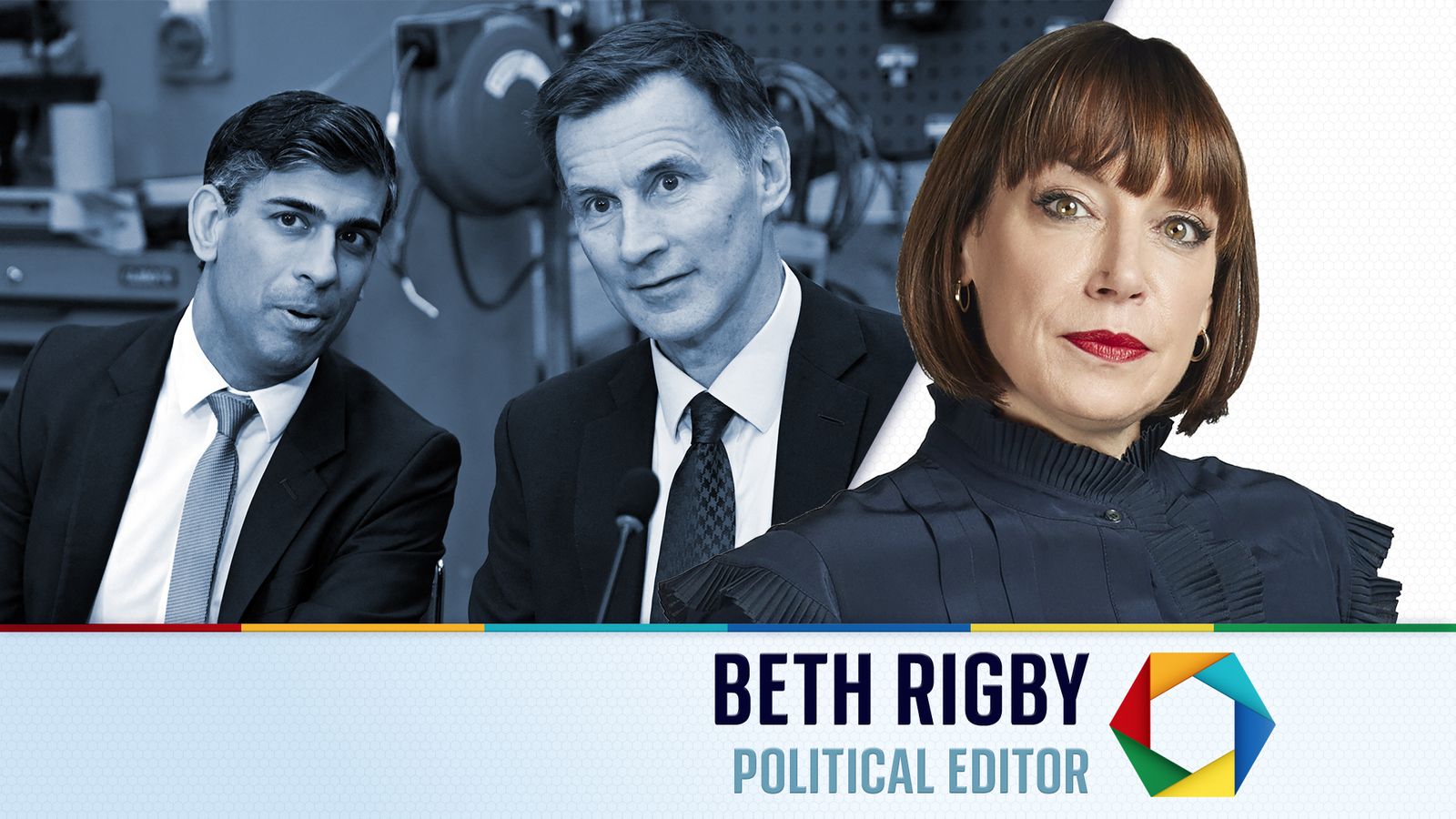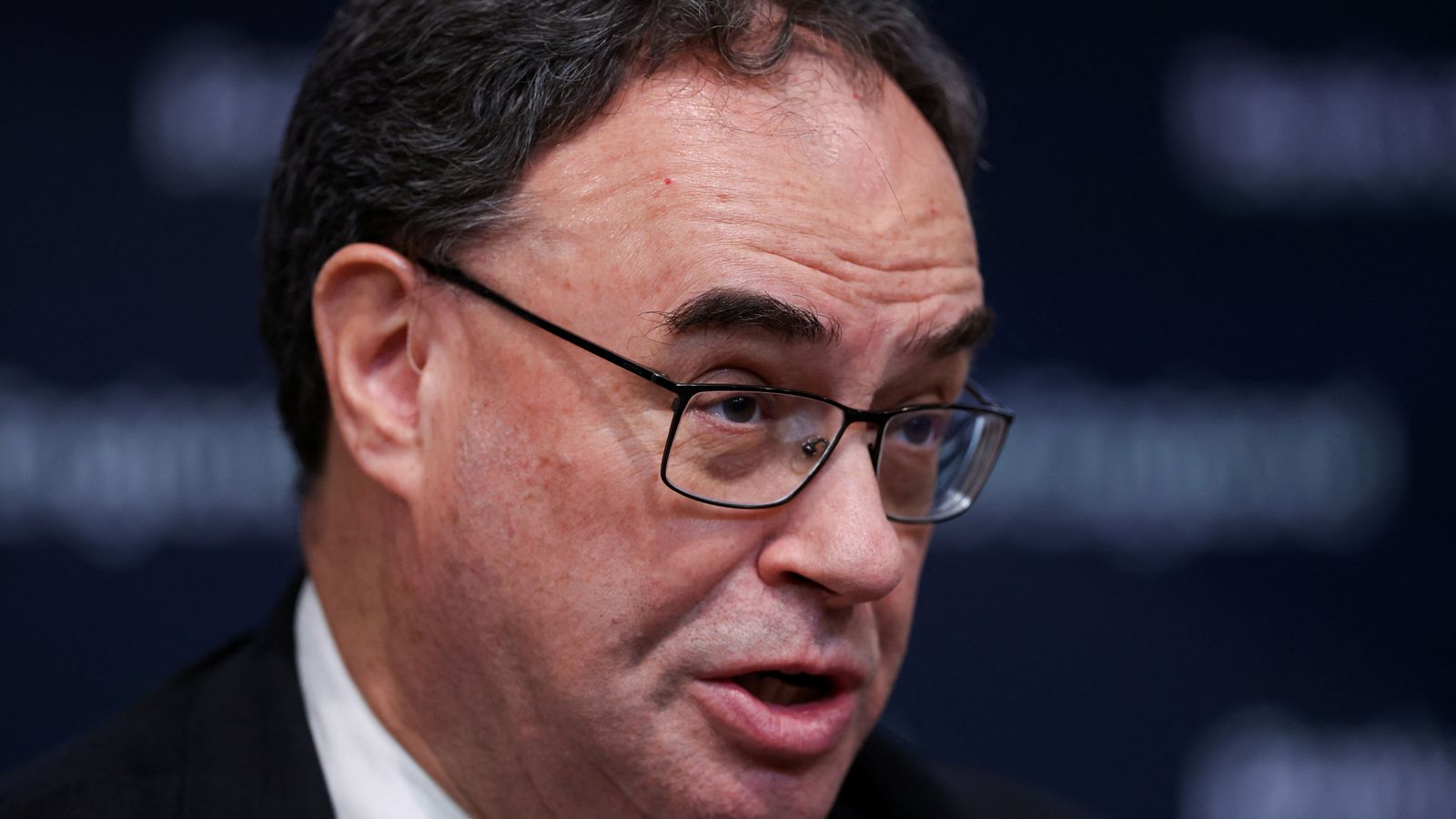This week, as Jeremy Hunt was putting the final touches to his budget, a poll dropped putting the Conservatives on their lowest level of support in 40 years.
MPs are desperate for the chancellor to give them something this week that just might pull them back up.
The final budget before the general election will put personal tax cuts at its heart.
Politics Live: What national insurance cut means for your pay
The chancellor is on Wednesday set to announce a two percentage point reduction in national insurance that will benefit 27 million workers.
Add it to the cut announced last November and the average worker will be getting back about £900 in tax.
It is, insist those who have been working on the statement, as much as this chancellor is able to do against the economic backdrop he’s dealing with.
How very inaccurate forecasts determine the amount spent on investment or tax cuts in budget
Jeremy Hunt set to cut national insurance by two percentage points at budget
Jeremy Hunt set to cut national insurance by two percentage points at budget
One said: “We’re in a tight financial position, with forecasts reduced week on week from the beginning of the year.
“Twenty billion of tax cuts (in the Autumn Statement) was the biggest tax-cutting budget since 1998. We thought we could replicate it but we can’t.”
Because Jeremy Hunt, brought in by Liz Truss to steady the ship and prioritise economic stability and growth, hasn’t just had a brain transplant.
Just look at what he did in his last economic statement: This was the chancellor who gave an £11bn tax break for companies investing in machinery and equipment.
Hardly a vote winner, but something he believed was right to do for the economy.
It is an approach echoed by those next door to No 11.
Please use Chrome browser for a more accessible video player
Those around the prime minister tell me this is a budget that will play into the government’s narrative that Rishi Sunak had to get a handle on the economy, and now things are moving in the right direction.
“There are no quick fixes or shortcuts, but the plan is working and we can begin to lower taxes,” said one government figure.
“This budget isn’t going to be a poll game changer, but it is going to be an important moment, proof points show we are on the right path.”
It is the sort of talk that has Tory MPs pulling their hair out.
Mr Hunt’s (first) big national insurance tax cut in November has done nothing to shift the polls. Why, ask MPs, will part two be any better?
Priti Patel, the former cabinet minister, told me on Tuesday what dozens of her colleagues want as they stare into the electoral abyss is a 2p cut to income tax.
“We’ve had national insurance cuts already. We had one in the Autumn Statement.
“That is why I think the best way forward would be to balance that out with an income tax cut. And obviously that’s a change to the thresholds.
“I’m sure, you know, you’ve seen the numbers, more and more people, up to four million more people will be dragged into paying higher rates of taxation because those thresholds haven’t changed by 2029. And I think we need to do something about that.”
Read More:
Fuel duty freeze set to be extended again in budget
What to expect – from tax cuts to fuel duty
Whether the chancellor pulls this rabbit out of the hat – and I have been steered away from this by people who insist that the fiscal outlook has deteriorated and limited what the chancellor can do – will no doubt frame the political debate in the budget wash-up.
Labour is planning on the basis that he will do something on income tax and is working on the basis that his headroom is bigger than billed – at about £25bn “which means he could afford to do both”.
Analysis Labour has done internally shows that even with 3p in income tax, people will still be worse off because of “the threshold increases, people’s pay going up dragging them into higher tax bands and council tax increases”.
Please use Chrome browser for a more accessible video player
But the mood music from Downing Street is a bit different: There is a chancellor and PM determined to show they can be trusted with the economy after the Truss debacle and who are eyeing this fiscal event with an eye on what comes next.
Energy bills are set to fall in April, while inflation could hit the Bank of England’s 2% target in May or June, which could lead to interest rate cuts and lower mortgages.
Be the first to get Breaking News
Install the Sky News app for free
All of this is playing perfectly into the “plan is working” slogan Mr Sunak desperately wants the country to buy into.
But when you’re 20 points behind in the polls, even after 18 months of trying, your party is going to want more than “proof points” that your economic plan is on track when the country has written you off.
Mr Hunt has an enormous task on Wednesday not just to get voters to look again, but keep his fractious party on side.








